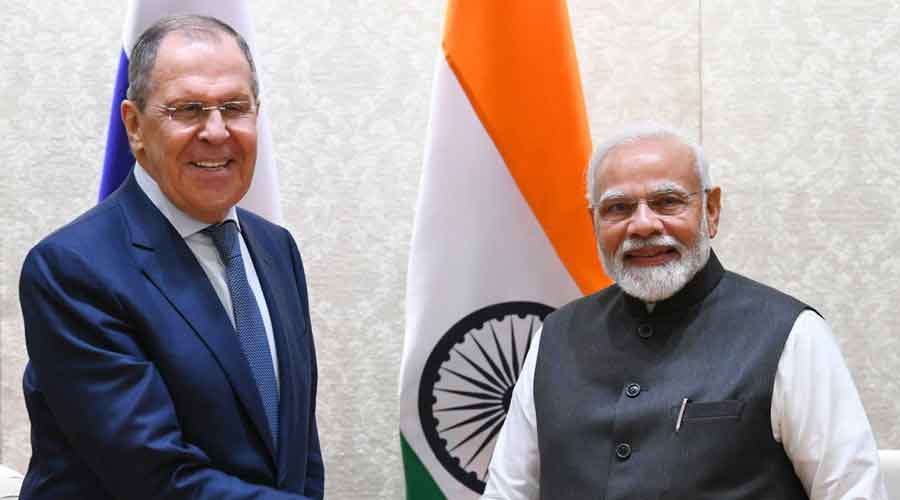Even in the complex, nuanced world of global diplomacy, a photograph can sometimes say more than a thousand words. So it was on Friday, when Prime Minister Narendra Modi met Russian foreign minister, Sergei Lavrov. A day earlier, Britain’s foreign secretary, Elizabeth Truss, was in New Delhi. Over the past 10 days, the foreign ministers of China and Mexico, the national security adviser of Germany and the deputy national security adviser of the United States of America have all visited the Indian capital. Like Mr Lavrov, all of them were focused on Ukraine and India’s delicate tightrope walk over the war. None of them got an audience with the prime minister. That Mr Modi met Mr Lavrov alone out of the bevy of diplomatic guests who have thronged Raisina Hill in recent days marks a significant shift in New Delhi’s tone from this time last year. When he had visited in April 2021, Mr Lavrov was denied a meeting with Mr Modi. A slip of the tongue from India’s external affairs minister, S. Jaishankar, only made things worse for the veteran Russian diplomat. On that trip, Mr Jaishankar mistakenly mentioned the “India-US” relationship when speaking of the warmth and the trust in the India-Russia partnership.
Yet if Mr Lavrov appears to have received special treatment out of the recent visitors who have crowded India, the West, which is trying to pull New Delhi away from Moscow, has only itself to blame. In fact, India shares many of the concerns of the US and Europe over the war in Ukraine. While it has not directly condemned Russia, it has argued for Ukraine’s sovereignty and territorial integrity to be respected. That the war has increased Russia’s dependence on China has only hurt India’s interests. But nothing riles New Delhi like threats and public pressure from foreign powers. Daleep Singh, the deputy NSA of the US, told reporters while in New Delhi that there would be “consequences” if India goes ahead with an increase in oil imports from Russia and if it establishes a rupee-rouble payment mechanism with Moscow to circumvent Western sanctions. Ms Truss got into a heated exchange with Mr Jaishankar at a panel discussion, where the Indian minister suggested that there was a “campaign” to pressure New Delhi. While the war in Ukraine has revealed the limitations of India’s relationship with Russia, the West’s response shows just why New Delhi will not be breaking up with Moscow anytime soon.










